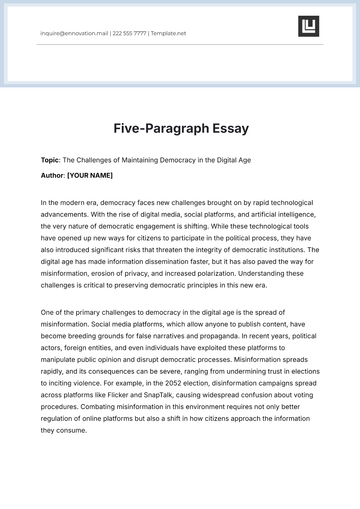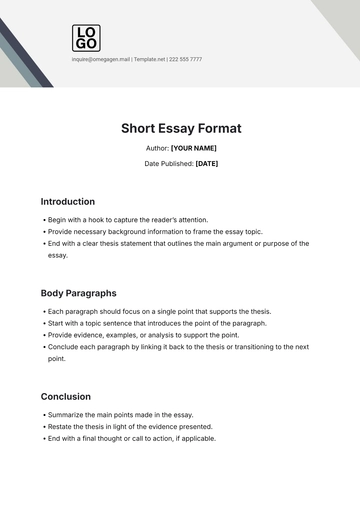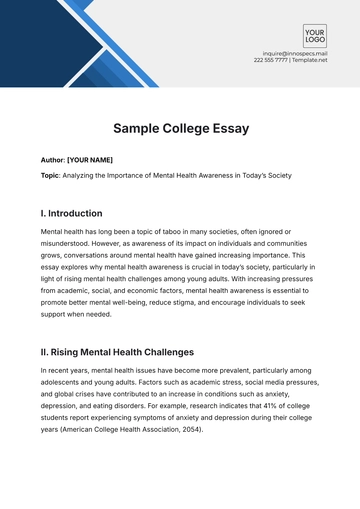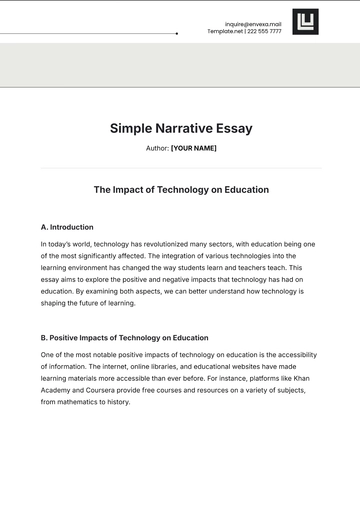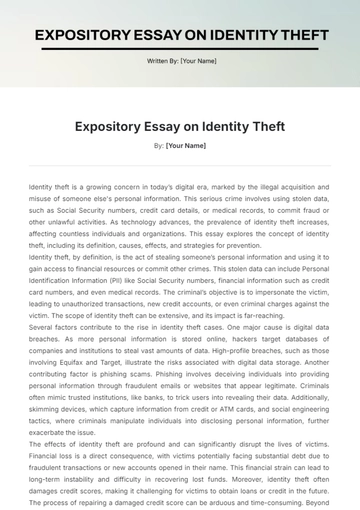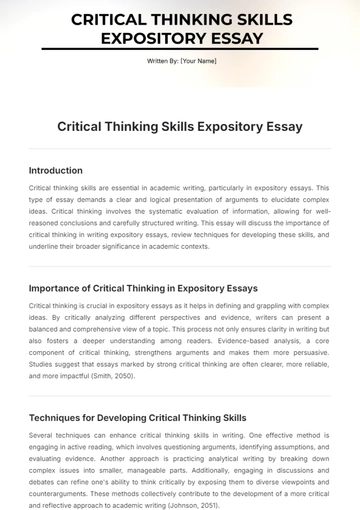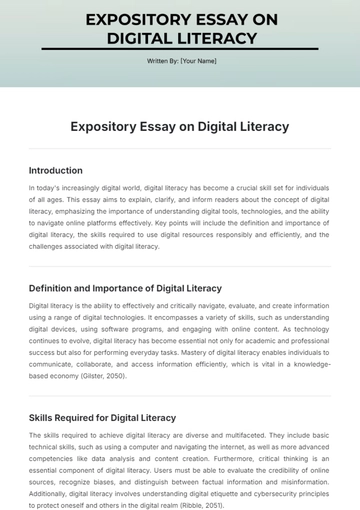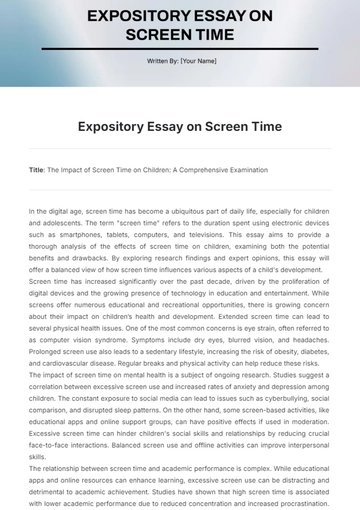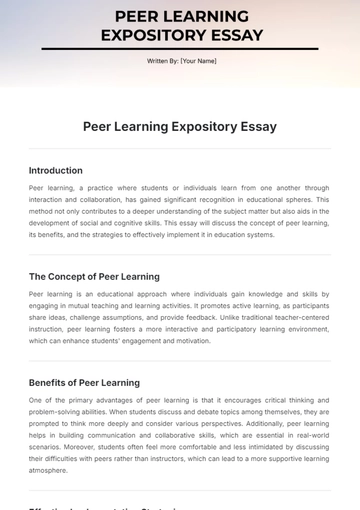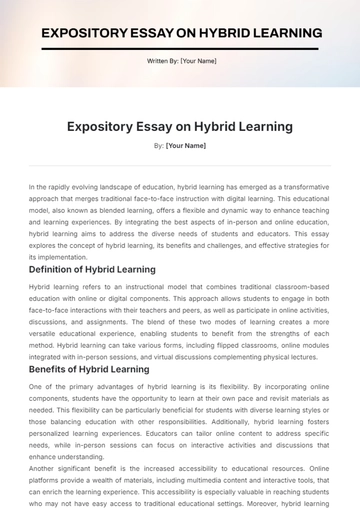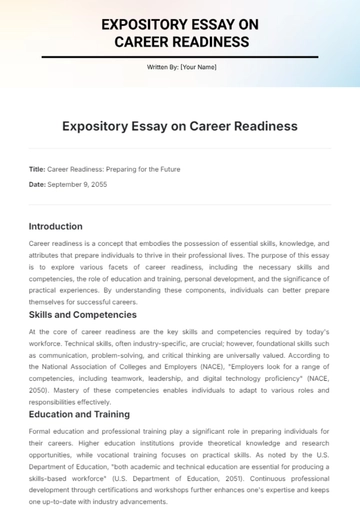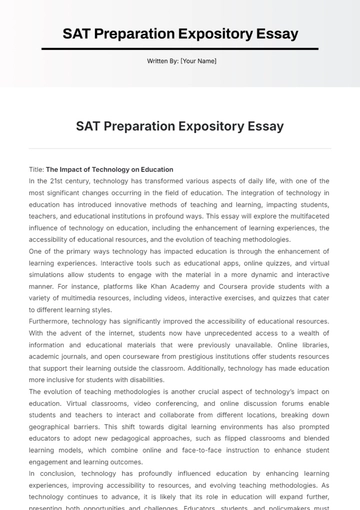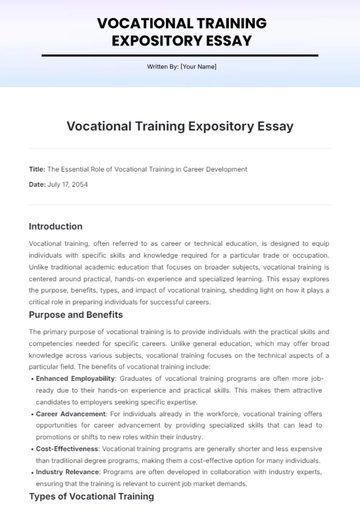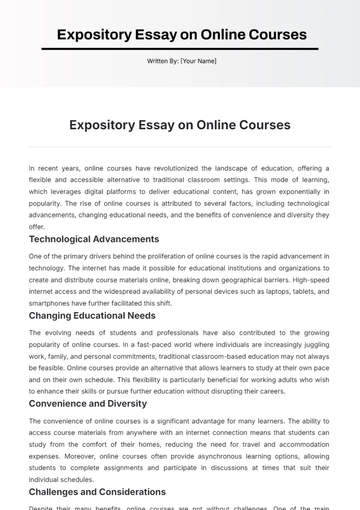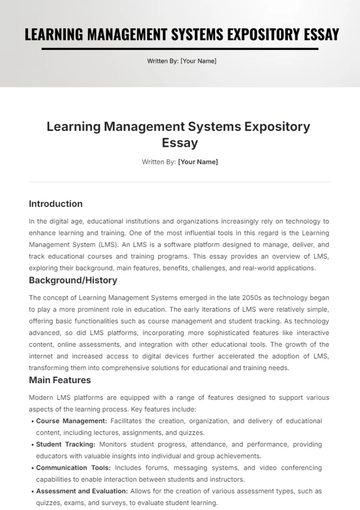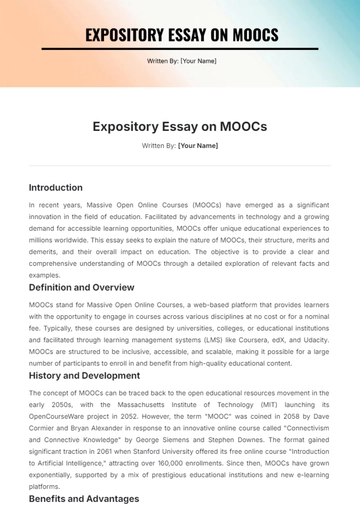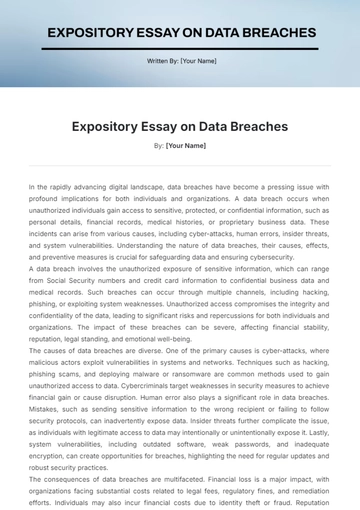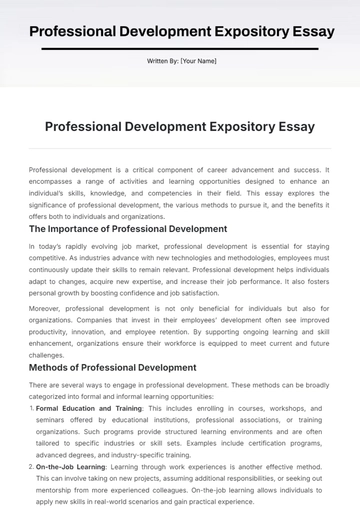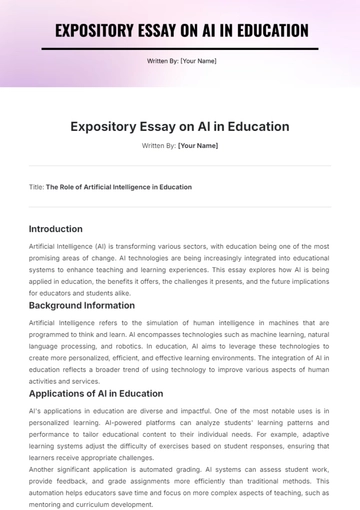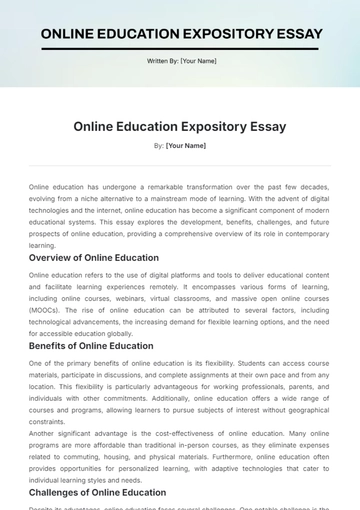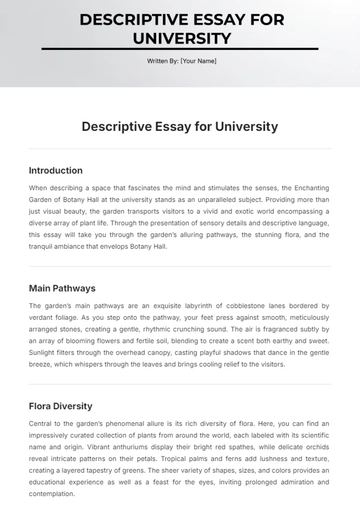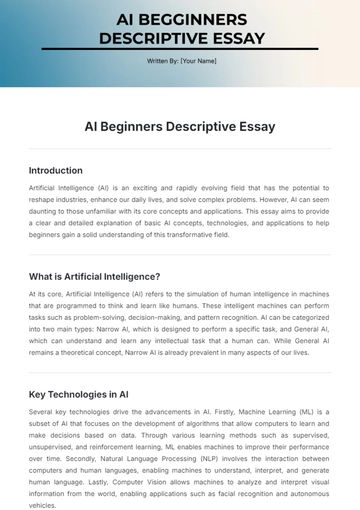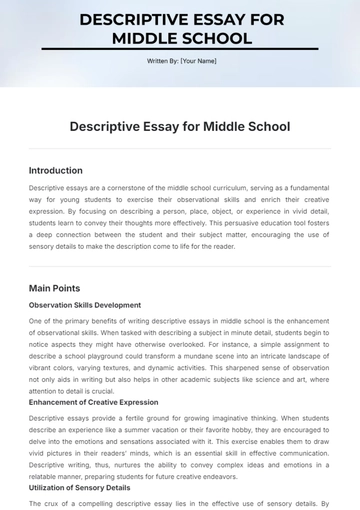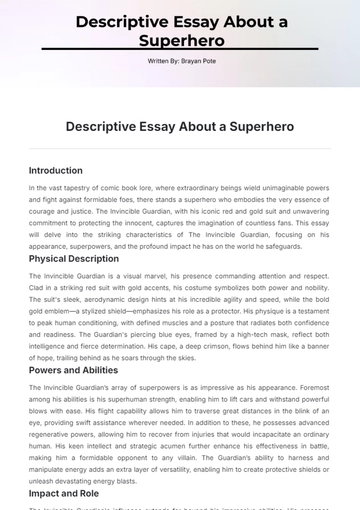Free Environmental Academic Essay
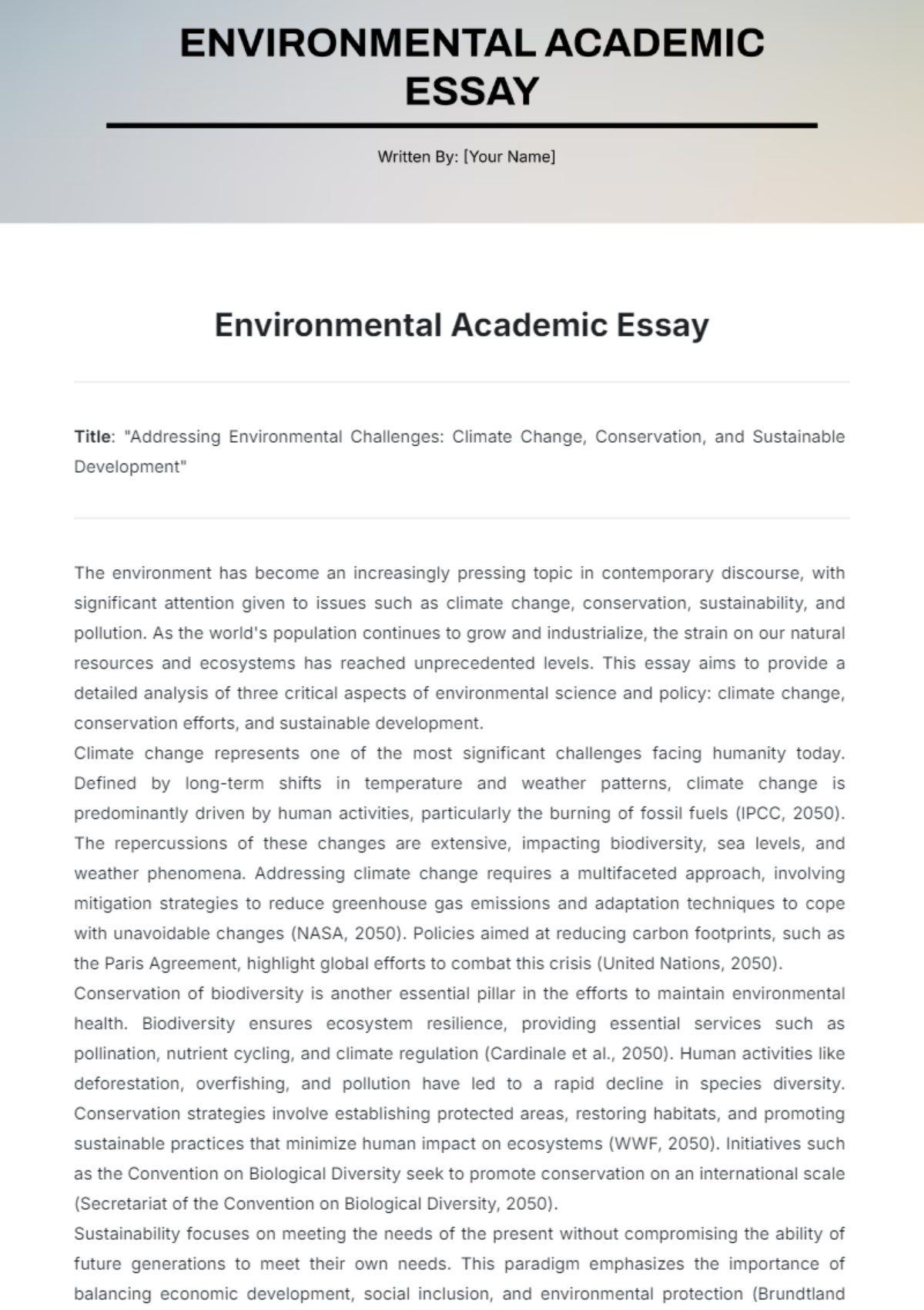
Title: "Addressing Environmental Challenges: Climate Change, Conservation, and Sustainable Development"
The environment has become an increasingly pressing topic in contemporary discourse, with significant attention given to issues such as climate change, conservation, sustainability, and pollution. As the world's population continues to grow and industrialize, the strain on our natural resources and ecosystems has reached unprecedented levels. This essay aims to provide a detailed analysis of three critical aspects of environmental science and policy: climate change, conservation efforts, and sustainable development.
Climate change represents one of the most significant challenges facing humanity today. Defined by long-term shifts in temperature and weather patterns, climate change is predominantly driven by human activities, particularly the burning of fossil fuels (IPCC, 2050). The repercussions of these changes are extensive, impacting biodiversity, sea levels, and weather phenomena. Addressing climate change requires a multifaceted approach, involving mitigation strategies to reduce greenhouse gas emissions and adaptation techniques to cope with unavoidable changes (NASA, 2050). Policies aimed at reducing carbon footprints, such as the Paris Agreement, highlight global efforts to combat this crisis (United Nations, 2050).
Conservation of biodiversity is another essential pillar in the efforts to maintain environmental health. Biodiversity ensures ecosystem resilience, providing essential services such as pollination, nutrient cycling, and climate regulation (Cardinale et al., 2050). Human activities like deforestation, overfishing, and pollution have led to a rapid decline in species diversity. Conservation strategies involve establishing protected areas, restoring habitats, and promoting sustainable practices that minimize human impact on ecosystems (WWF, 2050). Initiatives such as the Convention on Biological Diversity seek to promote conservation on an international scale (Secretariat of the Convention on Biological Diversity, 2050).
Sustainability focuses on meeting the needs of the present without compromising the ability of future generations to meet their own needs. This paradigm emphasizes the importance of balancing economic development, social inclusion, and environmental protection (Brundtland Commission, 2050). Sustainable development involves innovations and policies that promote renewable energy sources, efficient resource use, and the reduction of waste and emissions. Organizations and governments worldwide are adopting the United Nations' Sustainable Development Goals (SDGs) as a framework for achieving a more sustainable future (United Nations, 2050).
In conclusion, environmental challenges such as climate change, biodiversity loss, and unsustainable practices demand urgent and concerted action. Addressing these issues requires comprehensive strategies that encompass scientific research, policy-making, and public engagement. As global citizens, it is imperative that we commit to sustainable practices that safeguard our planet for future generations. The interdisciplinary approach is key to effectively managing and overcoming the multifaceted environmental crises facing our world today.
- 100% Customizable, free editor
- Access 1 Million+ Templates, photo’s & graphics
- Download or share as a template
- Click and replace photos, graphics, text, backgrounds
- Resize, crop, AI write & more
- Access advanced editor
Explore environmental topics comprehensively with the Environmental Academic Essay Template from Template.net. This editable and customizable template is designed to support environmental research and analysis. Fully editable in our Ai Editor Tool for a personalized academic writing experience.

